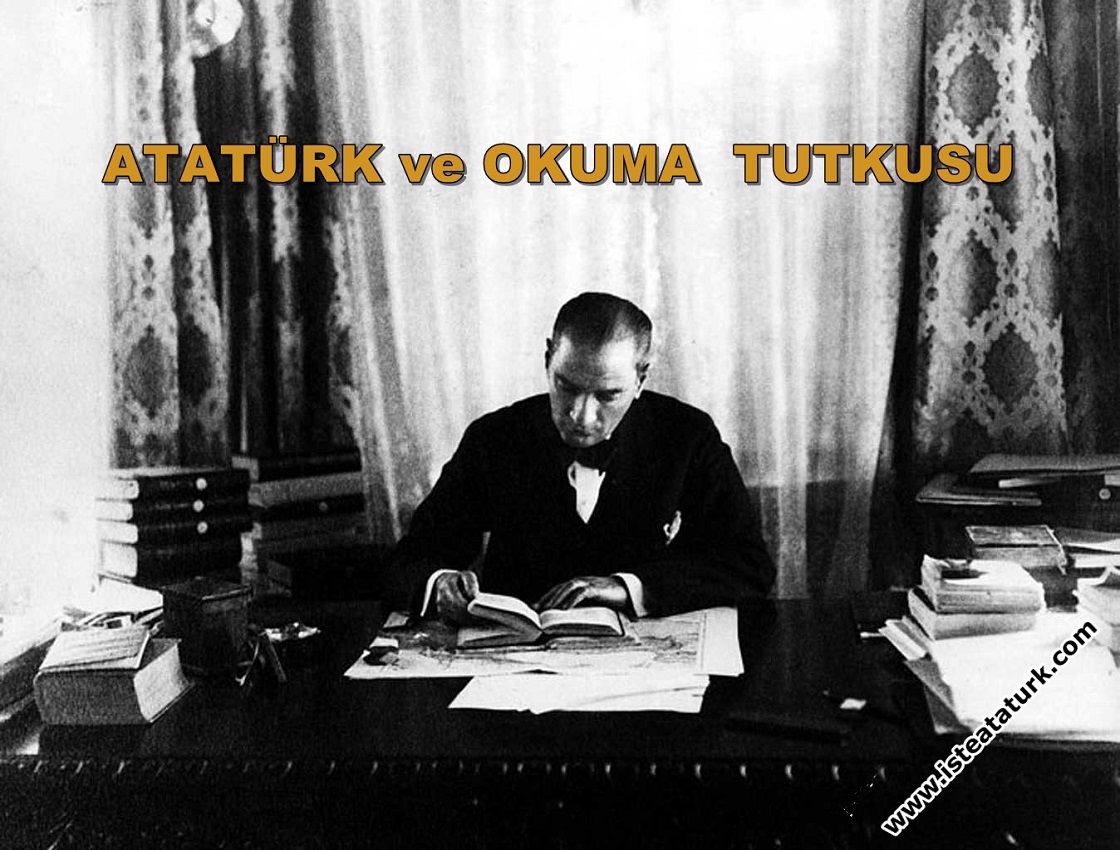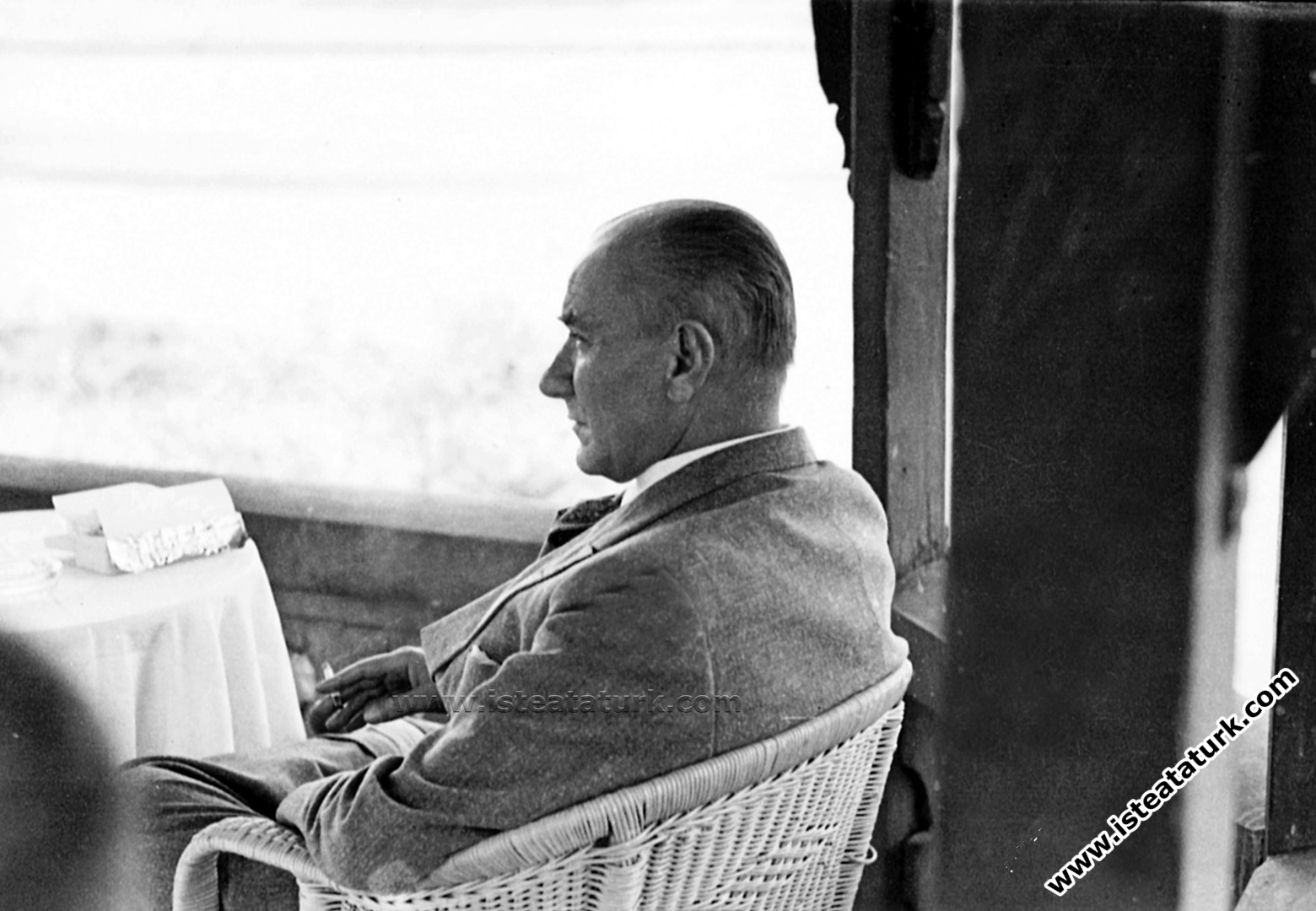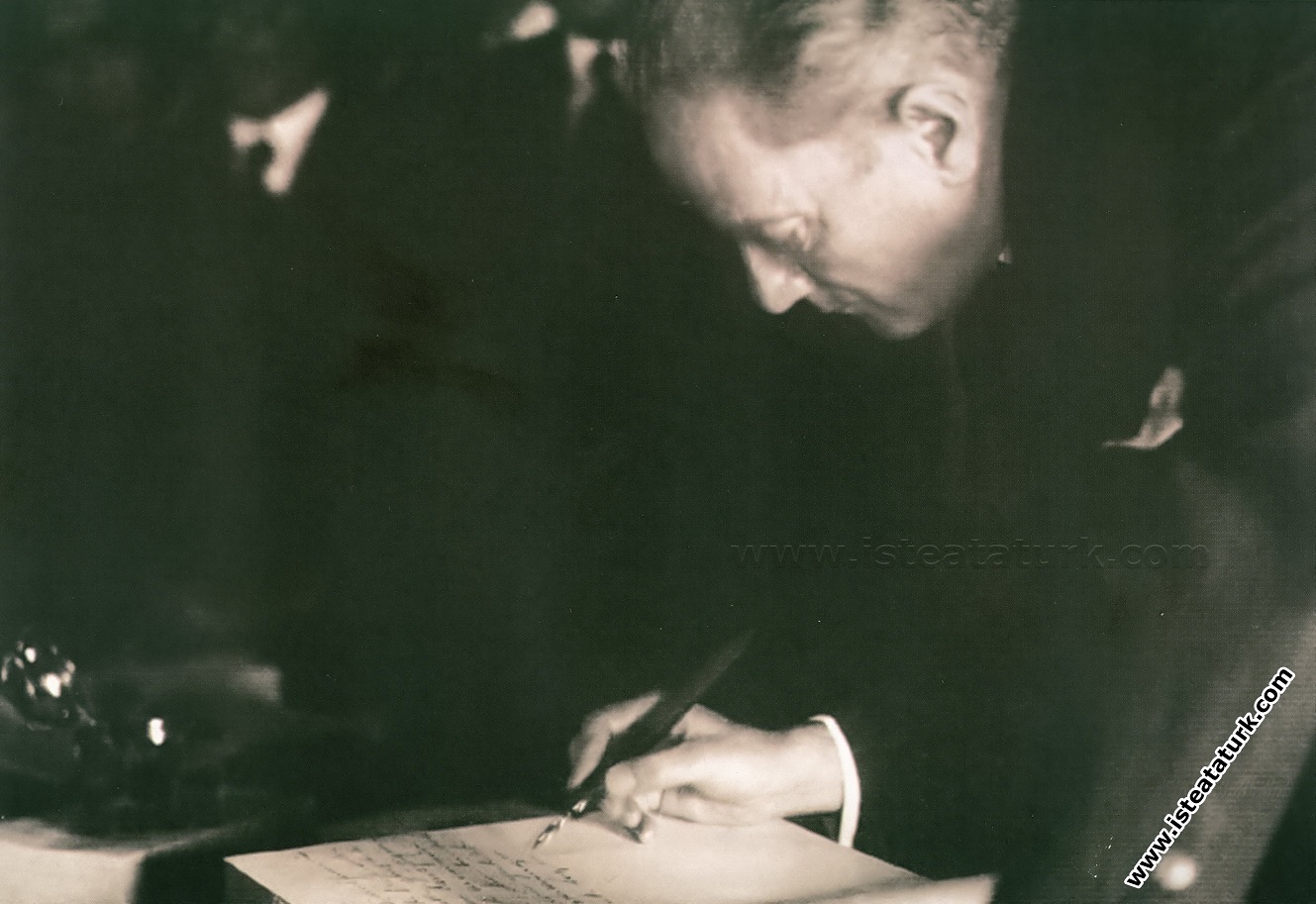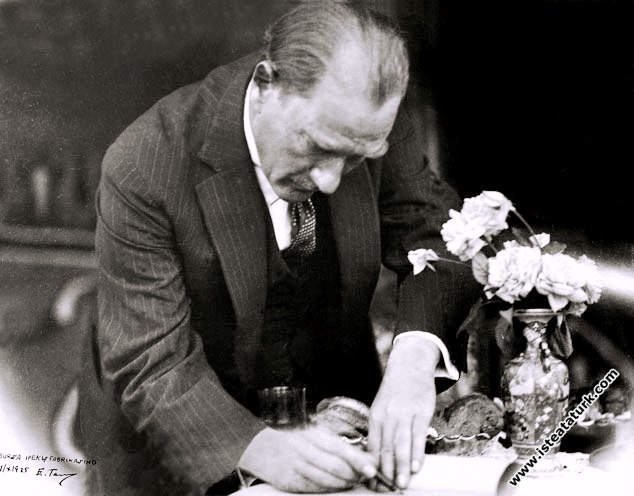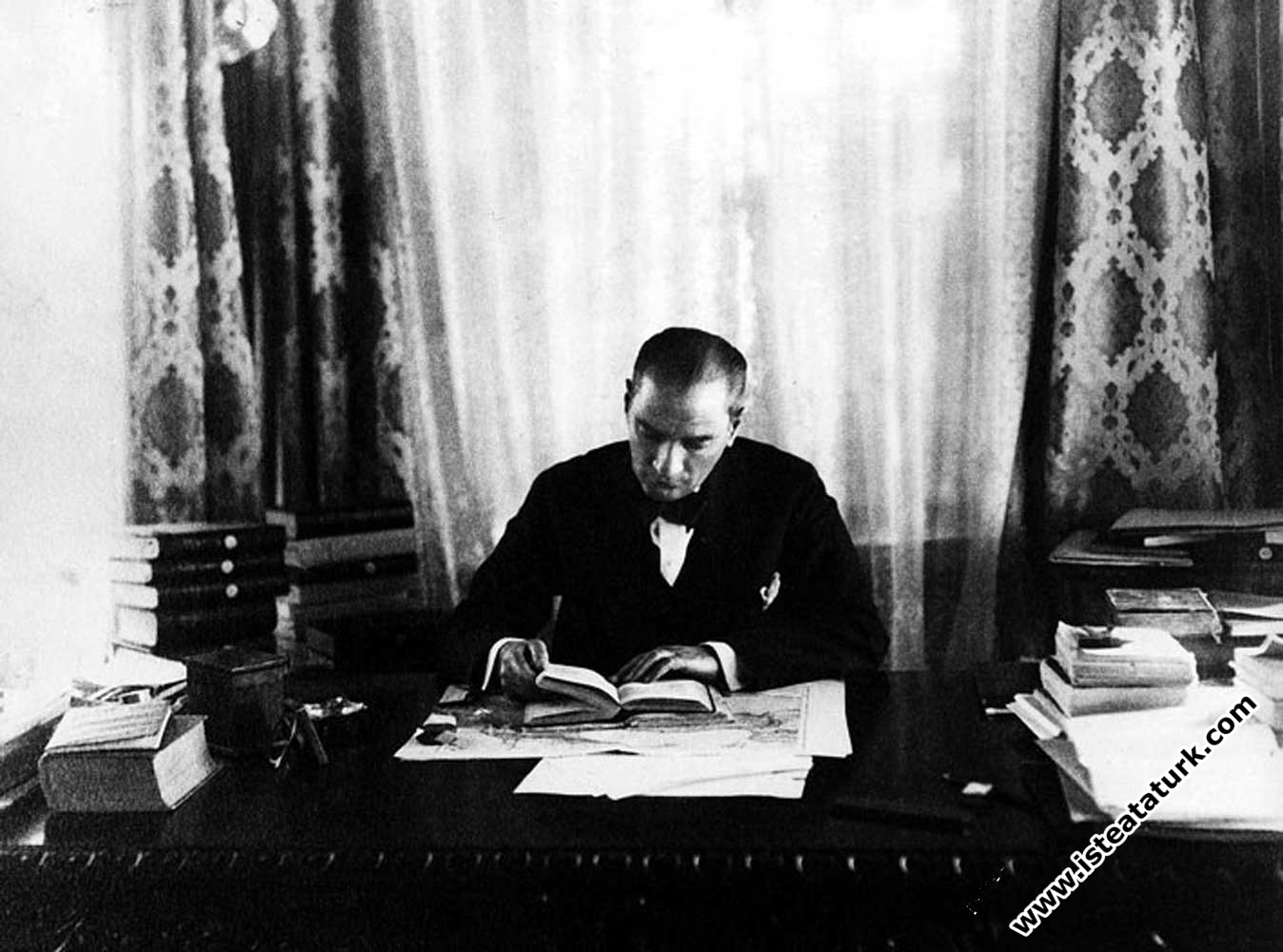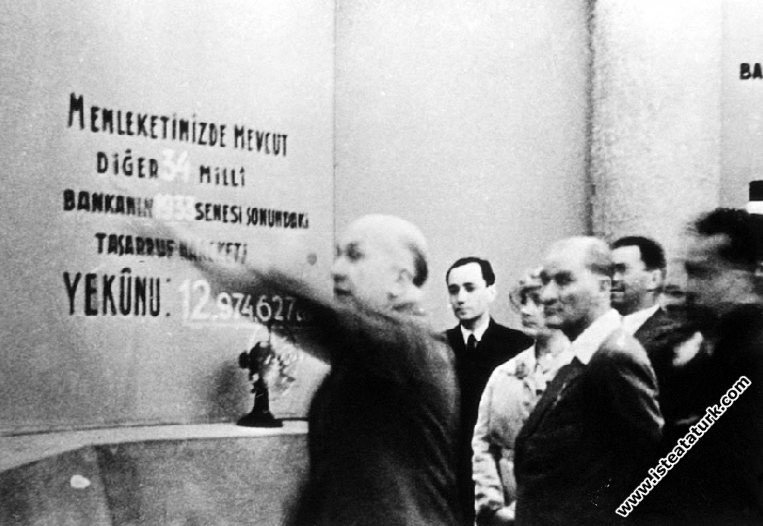
Atatürk and Economy
Character Size
"However, we want full independence, we aim to be fully independent in all areas of economic, financial, judicial and cultural." Mustafa Kemal Atatürk
ATATÜRK and ECONOMY
After the long and difficult War of Independence ended with victory, the leaders who waged this war, especially Atatürk, sought an answer to the following basic question: "How can Turkey develop, what kind of economic policy should it pursue in order for the people to attain prosperity as soon as possible?" In order to understand this, the Economics Congress was convened in İzmir on February 4, 1923. Mustafa Kemal Pasha opened the Congress, chaired by Kazım Karabekir Pasha, with a speech and emphasized the importance of the economy, the economic development model and the wrongdoing of the economic policy followed in our country until that time. The main views that Atatürk put forward in his speeches at this congress and later at other times were as follows:
THE IMPORTANCE OF THE ECONOMY
“The economy is everything; If the reasons for the rise and fall of nations and states are investigated thoroughly, it will be seen that this is primarily based on economic reasons. Our century is the century of economics. In this age, we must give due importance to the economy. This is the basic condition of our development and progress, it is to revive the economic life.
SWORD AND PLOW COMPARISON
According to Atatürk, “We will work hard to enrich our poor people, to turn our war-ravaged country into a prosperous one, we will be productive, and we will give due importance to agriculture and industry”. Atatürk compares the sword and the plow to explain this issue better. “Sword and plow, the first of these two conquerors has always been defeated by the second,” he says. Because the hand holding the sword gets weaker over time, while the hand holding the plow gets stronger. He cites Canada as an example. The British and the French went to Canada at the same time, the British stuck to the plow; The French, on the other hand, gave importance to the sword and conquest. Ultimately, the prolific British, who appreciated the plow, took over Canada.
THE WRONG POLICY OF THE OTTOMANS
At one point in this important speech, Atatürk brings the word to the Ottoman Empire, to the Ottoman Empire's policy of conquest. He says that with the personal and arbitrary invasions of the sultans, Anatolia's own Turkish population was melted down, little production was made in the country, while the economic and financial foundations of the state collapsed due to luxury, waste and showing off.
Atatürk says that in the Tanzimat period that started in 1839, the administrators took the economic liberalism and constant borrowing in the west, which was fashionable at that time, as an example for their development, and that this policy, over time, made the chains of capitulation even tighter and dragged Turkey into collapse and bankruptcy. After saying, “This policy has dealt great blows to our national industry and handicrafts,” he adds, “the competition against us was really ruthless, very ruthless.”
CAPITULATIONS
In his speech at this congress, Atatürk dwelled on the capitulations for a long time. He said that some of the privileges given to foreigners by the sultans as a blessing, a reference, a benevolence gradually expanded and they took the country's economy, finances and even the judiciary into record and condition, which ultimately brought heavy restrictions to our national sovereignty. "However, we want full independence, we aim to be fully independent in all areas of economic, financial, judicial and cultural," said Atatürk, and states that national sovereignty will only be realized in this way.
EARNING ECONOMIC VICTORIES
Atatürk carefully states that in the new era that has opened, Turkey will no longer aspire to be a world state, but will try to be an economic state and that the foundations of the new state will be established with the economy on which even the bayonet is based. Saying, "No matter how great our army's victories are, they will be incomplete unless they are completed with economic victories," Atatürk encouraged the society towards economic victories.
NATIONAL WORKING MOMENT
Among the important decisions taken by the I. İzmir Economics Congress is the Say Misak-ı Milli (National Working Agreement). This agreement, which was accepted with Atatürk's proposal, not only expresses the principle of social peace and social justice in the country, but also reminds the virtue of working and the importance of being hardworking. From now on, our country will be, in Atatürk's words, "the land of the hardworking".
THE craving to make the country rich
In his speech at the Izmir Economics Congress, Atatürk also criticizes the "one bite, one cardigan" view that is common among the people. According to him, we cannot accept such a philosophy. After emphasizing that poverty is not a virtue, Atatürk said, "We will no longer be a country of the poor, but a country of the rich." In another speech, Atatürk said, “We will not be hostile to those who have a little money; On the contrary, we will try to raise millionaires in our country” and advise everyone to be rich. This view, which expresses a deep revolt against the poverty circle formed by centuries, was adopted by the III. It can also be considered as a reflection and influence of the political views that express the philosophy of being rich of the bourgeoisie, such as Guizot, J. Ferry, Thiers, Gambetta, who are famous statesmen of the Republican period.
NATIONAL ECONOMY POLICY, PRIORITY TO AGRICULTURE AND PEASANT
Atatürk summarized the basic principles of the national economic policy of the new state as follows: “First of all, importance will be given to agriculture and farmers. Because the majority of the people of our country are peasants engaged in agriculture. And the peasant will be our lord in this new era. For this, the tithe, which squeezes the villagers like a press, will be abolished. Modern agricultural methods will be applied, and the necessary support loan will be provided to the villagers through Ziraat Bank. Handicrafts and domestic industry will be encouraged”. For this reason, the Industrial Incentive Law was enacted in 1927. The benefits of mechanization in agriculture are emphasized.
RAILWAY POLICY
“The policy of covering the country with iron nets will be made one of the pillars of our national economic policy. For this purpose, on the one hand, the construction of new railways will be accelerated, on the other hand, railways operated by foreigners will be purchased. The nationalization policy is not only in the field of railways, but also in electricity, tram, gas, coal, etc., which are in the hands of foreigners. will also be written to their businesses.”
FOREIGN CAPITAL
While taking these important steps to strengthen the national economy, Atatürk also touched upon the issue of foreign capital. After most of the Tanzimat reformers opposed the policy of borrowing abroad for luxury and giving away the resources of the homeland to foreigners, Atatürk says: “We are not actually against foreign capital. The resources of our country are wide, let them come, let's do business on equal terms. Let them have a share in the development of our country. But this will not be as one-sided as it used to be; will benefit both parties equally. For this, we are ready to give all necessary assurances to foreign capital.”
NATIONAL TRADE POLICY
According to Atatürk, “in order to enrich the merchant class of our people, measures will be taken to prevent trade from being in other hands. Trade and resources will be in the hands of our merchants”. While these words expressed the reaction to the fact that the Muslim Turkish element, which used to be the majority in the past, remained poor, while the minority elements became extremely rich; on the other hand, it emphasizes the importance of the merchant class in the creation of a national bourgeoisie. After Atatürk carefully stated that what will make the country rich in terms of trade is exports rather than imports; He says that "exports should be in the hands of traders from us".
MAARIF AND ECONOMICS
Atatürk wanted the new education program to be on the way to revitalize and strengthen the national economy. For this reason, the curriculum and education methods in grade schools have been revised and put into practice in the light of this directive.
CRITICS DIRECTED TO ATATÜRK'S ECONOMIC POLICY
Recently, a new one has been added to the criticism directed against Atatürk and Kemalism. This is a criticism of Atatürk's economic policy. For example, Prof. According to the proponents of this view, led by the author Mehmet Altan, Atatürk's economic policy was wrong mainly in the following aspects:
1- Atatürk gave importance to agriculture rather than industry in his economic policy. However, agriculture could not rapidly develop a country, especially Turkey, under the conditions of that day.
In my opinion, this criticism is partially justified. Because in the Turkey of the 1920s and 30s, agriculture in Turkey was done with very primitive methods. The tractor was only available at the Forest Farm and in the hands of a few wealthy landowners. On the other hand, Turkey has not yet experienced an event called artificial fertilizer (fertilizer). Moreover, the methods used in agricultural economy based on a few main products such as barley-wheat, hazelnuts, grapes, figs and cotton were very primitive. The villagers were cultivating the land with the methods almost from the time of Etiler. As a result, it was obvious that such an agricultural economy would not enrich Turkey much in a short time. In this regard, Prof. Even if the criticism of Mehmet Altan and those who think like him against Atatürk's agricultural policy is partially correct, these criticisms generally miss some important points. This is an issue related to the social base on which Atatürk relied on the state administration. Namely; During the Atatürk period, the vast majority of the population, 80 percent, lived in villages. That's why Atatürk said "The peasant is the master of this country" in order to show the importance he gives to this social base, village and villager.
In fact, the Turkish economy in this period was generally a simple village economy. The market economy was not developed. The trade carried out was also more of an exchange (barter). The peasant brought his wheat, barley, cotton, etc. to the city. He gave it to the merchant and the intermediary, in return for gas, cloth, salt, etc. In other words, economic life was in a very limited circulation process. There were large landowners and large herdsmen, but most of them had no cash. The stock market and banking system were not developed. Thus, workers' wages, like civil servants' salaries, were very low in Turkey, which showed the characteristics of a primitive, traditional agricultural society. Only parliamentary salaries were quite high compared to Turkey's average. Other sections of the bureaucracy were in a better position than the ordinary people, but they were still not in a very good condition. Because the revenue generated by the system; so to speak, the cake was small. After the army and bureaucracy's share was taken out of this small cake, very little was left. It was true, though, that inflation seemed to disappear. On the other hand, the Turkish lira was one of the most valuable currencies in the world and was almost at par with the dollar. But all these could not be counted as indicators that determine the strength of the Turkish economy.
2- Atatürk did not give any importance to industry; On the contrary, important steps were tried to be taken in this field with the Izmir Economy Congress, the First 5-year development plan, and the Industry-i Encouragement Law enacted in 1927. Heavy industry was not neglected either. In the Zonguldak and Karabük basins, factories that would be considered giant facilities, according to Turkey's measurements at that time, were established. Karabük iron and steel factories were among the most important of these facilities. The old coal and mines continued to be operated. Special attention was given to the railway policy for the cheap transportation of the extracted products, and a significant part of Anatolia was covered with "iron nets". Finally, let's add that sugar factories, cloth combinations, etc., were built in some parts of Turkey with the support of Soviet Russia to a large extent at the beginning. had opened. Many of these are still in operation today.
EVALUATION OF THE ECONOMIC POLICY OF THE 1923-1929 PERIOD
We can draw the following conclusions and make the following evaluations from the words of Atatürk that we have summarized so far and from the principles of the economic policy implemented in Turkey between the years 1923-1929:
1- The new economic policy of the state has been handled with a practical, empirical and pragmatic point of view rather than doctrinal. Since there was not a wealthy expert and competent bureaucracy staff trained in this field, and there was not much trust in foreigners and elements who are not among us, the administrators followed a pragmatic development policy, almost groping, by taking into account the realities and needs of the country, under the guidance of economic life.
2- Within the theoretical framework drawn by the Constitution, a model of creating a more moderate, liberal-capitalist society was initially envisaged and some steps were taken in this direction. One of the most important of these steps was the establishment of Türkiye İş Bankası in 1925. Celal Bayar, whom Atatürk believed in and trusted in his personal skills, was appointed as the head of the bank. A significant portion of the bank's capital was provided by Atatürk.
STATISTIC POLICY
Until the 1929-1930 World Depression, the national economy in Turkey was handled based on the above-mentioned understandings and practices were mostly made in this direction. However, in 1929, the great economic depression that broke out first in the United States, increasing unemployment, economic recession, inflation, and the cost of living began to spread all over the world, and every country began to feel its effects more or less. This depression had its effect in Turkey, which was relatively poor and had not yet healed the wounds of wars. Like many other states, the Republic of Turkey has shifted towards a system that includes state interventionism in the economy since 1930. The Law on the Protection of the Value of the Turkish Currency was enacted, and the foreign exchange, money supply and circulation function was put under strict control. At the CHP Congress held in 1931, it was decided to implement the statism model in the economy. So what was statism and how was it practiced in Turkey?
Atatürk and his friends briefly defined statism as "the state does what the individual cannot do" and they put forward the following justifications for the principle of statism: Our country was burned, destroyed and turned into ruins in long wars. Foreign capital does not act willingly for the reconstruction and development of the country. Turkish entrepreneurs also do not have the resources and financial means necessary for a business. In that case, the state will enter into economic life in many fields, especially in industry, build railways, factories, dams, social facilities, and also establish telephone, telegraph, postal and radio facilities and other necessary enterprises, which are mostly in the hands of private enterprises in the West, and will operate. Well, this statist system, Marxist, What position would it occupy vis-à-vis the socialist-collectivist and liberal-capitalist market economies? Atatürk describes statism in our country as follows: “Statism in our country was not established by being inspired by socialist theories, as some people think. So our statism is not a socialist economic order; but statism is not a liberal-capitalist system either. Statism is a system unique to Turkey, born out of Turkey's conditions and its own needs”. In economic policy, this could also be called the third way, or the mixed economy model. The principle of statism was included in the Constitution along with the “six arrows” of the CHP with the constitutional amendment made in 1937 and continued increasingly with the state of emergency economic laws and practices adopted in the Second World War after Atatürk's death. An example of the most important of these laws,
Although the intervention of the state in various aspects of economic life and the practices of state economic enterprises give some positive results, the principle of statism; Over time, the hen that lays the golden egg with unnecessary, even arbitrary interventions in economic life, could not yield due to boring bureaucratic formalities and obstacles, and most of the enterprises caused great damage, and the expected rapid economic growth, social welfare, and high increase in national income in the country could not be achieved. KITS have created huge gaps in the state's budget, treasury, due to partisan policies, and have almost put a heavy burden on the state and citizens.
It is strange, Celal Bayar, who defended the liberal-market economy against the statist model in the economy in the election platforms and in the party program, claimed that the State Economic Enterprises constituted the largest part of the Turkish economy in terms of capital and power during the Democratic Party period, and in this respect, they were as statist as the CHP. ! Although this explanation was a paradox or a political tactic, it also reflected a correct determination in a way. However, it must be said that the economic policies implemented between the years 1950-1960 gradually developed in a way that would strengthen and satisfy the peasants, artisans, traders, entrepreneurs and the private sector. Doors were opened to foreign capital, especially the USA. There has been a relative prosperity and growth across the country compared to the past. Also from the USA, some of which are grants,
CONCLUSION AND EVALUATION
In my opinion, there were two main reasons why the economic policy and statism in Turkey made zigzags and sudden turns over time: The first of these was that statism could not be placed on a consistent, solid idea base and thought system. Because the leaders rejected doctrinal approaches and wanted to follow a practical, empirical and sometimes even discretionary policy line that changes according to daily needs and developments, the principle of statism could not give the desired result. In fact, after a while, the efforts that wanted to put statism on an idea and system, for example, the Kadro Magazine movement, broke up before it could complete its mission. Let's add that the famous writers of this magazine, such as Şevket Süreyya Aydemir, Yakup Kadri Karaosmanoğlu, who have little to do with economics and whose literary personalities are at the forefront, To tell the truth, they couldn't handle it properly. We can say that the fact that the governments that came to power looked at this issue from very different, sometimes even completely opposite, perspectives was an important reason for the policy of statism to be pulled to the right or to the left over time.
NOTE: This conference was held on behalf of the Atatürk Research Center Presidency on 14 February 1995 in Afyon by Prof. Dr. Given by Bülent Daver.
Prof. Dr. Bülent Daver
Source: ATATÜRK ARAŞTIRMA MERKEZİ DERGİSİ, Sayı 31, Cilt: XI, Mart 1995
